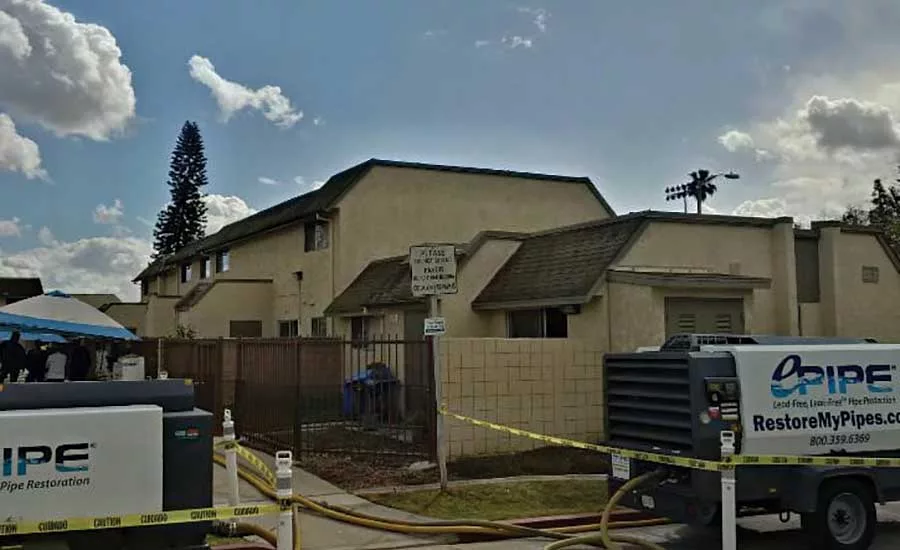Los Angeles Housing Authority completes $4.5M pipe rehabilitation
ePIPE was selected for the project.

The patented ePIPE process provides a protective barrier coating inside the pipes, thereby preventing leaks and brining lead and copper leaching into the USEPA compliance. Photo credit: ePIPE
Originally built in the 1920s, the housing project in Los Angeles was rebuilt in 1974, but was suffering from the onset of pinhole leaks in its copper drinking water pipes that are located within the structure of the units. Pipes varied in size from ½-inch to 1 ½-inch in diameter.
In February 2018, the County of Los Angeles Housing Authority contracted to have the ePIPE process completed in a seven unit residential complex. The seven units were completed over a two-day period. One day involved pre-installation set-up of valves and the second day for the restoration of the hot and cold water pipes.riginally built in the 1920s, the housing project in Los Angeles was rebuilt in 1974, but was suffering from the onset of pinhole leaks in its copper drinking water pipes that are located within the structure of the units. Pipes varied in size from ½-inch to 1 ½-inch in diameter.
A re-pipe of a similar seven unit complex took 14 days with the occupants having to be relocated during the re-piping procedure.
The county officials assessed the benefits of ePIPE versus a conventional re-piping project. The review included a host of physical and occupant focused factors, including cost, ePIPE durability, suitability, application and displacement of the occupants.
The patented ePIPE process provides a protective barrier coating inside the pipes, thereby preventing leaks and brining lead and copper leaching into the USEPA compliance.
ePIPE, engineered to exceed code specifications, features the benefit that pipes in a unit can be completely restored in a single day, starting at 8 a.m. and finishing by 5 p.m., without any occupant displacement.
The contract with the county of Los Angeles Housing Authority is expected to be completed by October. Other projects of significant scope using the patented ePIPE process are located in Washington, D.C.; New Jersey; California; Florida and Texas.
Looking for a reprint of this article?
From high-res PDFs to custom plaques, order your copy today!







